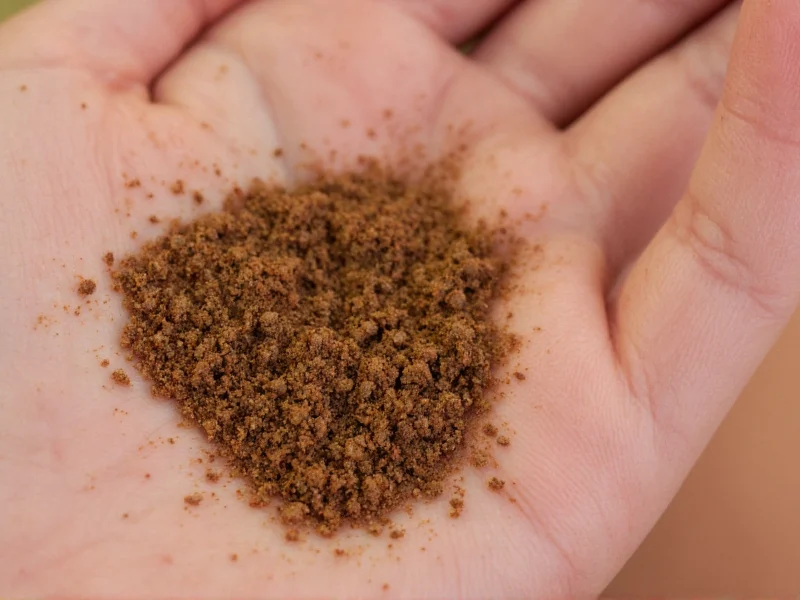For centuries, cloves have been used as a natural remedy for dental discomfort. The active compound eugenol, which makes up 70-90% of clove essential oil, has well-documented analgesic and antimicrobial properties that can temporarily alleviate tooth pain. When applied directly to the affected area, powdered cloves release eugenol that numbs nerve endings and reduces inflammation.
How Powdered Cloves Work for Tooth Pain
Eugenol functions as a natural local anesthetic by blocking pain receptors in the dental pulp. Research published in the Journal of Dentistry confirms that eugenol inhibits voltage-dependent sodium channels, which are critical for pain signal transmission. Unlike commercial pain relievers that work systemically, clove powder provides targeted relief exactly where applied.
The antimicrobial properties of eugenol also help combat oral bacteria that may contribute to tooth infections. A 2018 study in BMC Complementary Medicine and Therapies demonstrated that eugenol effectively inhibits common oral pathogens including Streptococcus mutans and Porphyromonas gingivalis.
Proper Application Technique for Maximum Relief
To use powdered cloves effectively for toothache:
- Clean the affected area by rinsing with warm salt water
- Apply a small amount of powdered cloves directly to the painful tooth and surrounding gum
- Gently press the powder into place using a cotton swab
- Leave in place for 20-30 minutes before rinsing
- Repeat every 2-3 hours as needed for temporary relief
For enhanced effectiveness, mix the powdered cloves with a small amount of olive oil to create a paste that adheres better to the tooth surface. The oil carrier helps slow the release of eugenol, extending the pain-relieving effect.
Comparing Clove Remedies for Dental Pain
| Remedy Type | Application Time | Pain Relief Duration | Effectiveness Rating |
|---|---|---|---|
| Powdered cloves | 20-30 minutes | 30-60 minutes | ★★★☆☆ |
| Clove oil | Immediate | 45-90 minutes | ★★★★☆ |
| Clove tea | 5-10 minutes | 20-40 minutes | ★★☆☆☆ |
| Over-the-counter gels | Immediate | 60-120 minutes | ★★★★☆ |
Limitations and Safety Considerations
While powdered cloves offer temporary relief, they have important limitations. The pain relief typically lasts only 30-60 minutes, significantly shorter than commercial dental anesthetics. Excessive use can cause tissue irritation, and some individuals may experience allergic reactions including oral swelling or burning sensations.
People with bleeding disorders or taking blood thinners should avoid prolonged clove use, as eugenol has anticoagulant properties. The American Dental Association recommends limiting clove applications to no more than 3-4 times daily and discontinuing use if irritation develops.
When Powdered Cloves Aren't Enough
Natural remedies like powdered cloves for toothache provide only temporary symptom relief. They do not address the underlying cause of dental pain, which could include:
- Dental caries (cavities) requiring fillings
- Infected dental pulp needing root canal treatment
- Gum disease requiring professional cleaning
- Cracked teeth needing restoration
- Impacted wisdom teeth requiring extraction
Seek immediate dental care if you experience:
- Pain lasting more than 48 hours despite home remedies
- Swelling in the face or jaw
- Difficulty swallowing or breathing
- Fever accompanying tooth pain
- Pus or discharge around the affected tooth
Complementary Home Care While Waiting for Dental Appointment
While powdered cloves can provide temporary relief, combine them with these evidence-based approaches:
- Rinse with warm salt water (1/2 teaspoon salt in 8oz warm water) to reduce inflammation
- Apply a cold compress to the outside of your cheek for 15 minutes
- Elevate your head while sleeping to reduce blood flow to the area
- Avoid extremely hot, cold, or sugary foods that may trigger pain
- Take over-the-counter pain medication as directed if no contraindications
Remember that these natural toothache relief methods are temporary solutions. Only a qualified dentist can diagnose and properly treat the underlying cause of dental pain. Delaying professional care can lead to more serious complications including abscess formation and potential systemic infection.
How quickly does powdered cloves work for toothache relief?
Powdered cloves typically begin providing noticeable pain relief within 5-10 minutes of application, with maximum effect occurring around 20 minutes. The numbing effect usually lasts between 30-60 minutes, making it a suitable short-term solution while waiting for dental care.
Can I use whole cloves instead of powdered cloves for toothache?
Yes, whole cloves can be used by placing one directly next to the painful tooth and gently biting to release the oils. However, powdered cloves offer more consistent coverage of the affected area and may provide more reliable pain relief compared to whole cloves.
Is powdered clove safe for children with toothaches?
Use powdered cloves cautiously for children over age 5, applying only a small amount directly to the affected area. For younger children, consult a pediatric dentist before using any home remedies. Never allow children to swallow significant amounts of clove powder, as eugenol can be toxic in large quantities.
How does clove powder compare to clove oil for tooth pain?
Clove oil contains a higher concentration of eugenol and works faster than powdered cloves, but it can cause more tissue irritation. Powdered cloves provide a gentler, more controlled release of eugenol with less risk of burning sensitive oral tissues, making them preferable for those with sensitive gums or when precise application is needed.
Can powdered cloves heal an infected tooth?
No, powdered cloves cannot heal an infected tooth. While the antimicrobial properties of eugenol may temporarily reduce bacterial activity, they cannot eliminate a dental infection. Professional dental treatment such as root canal therapy or extraction is necessary to properly address tooth infections.











 浙公网安备
33010002000092号
浙公网安备
33010002000092号 浙B2-20120091-4
浙B2-20120091-4